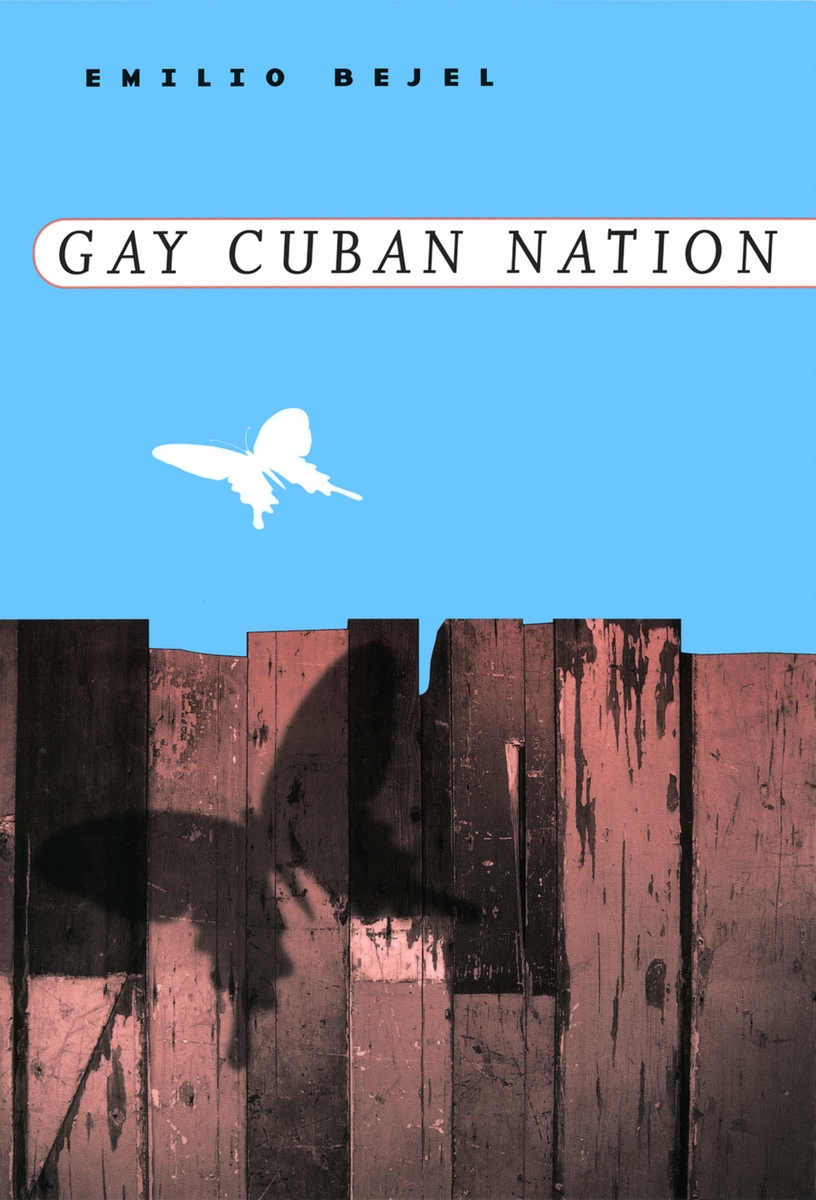Book Review on Literature and Literary Theory Professor Emilio Bejel's book "Gay Cuban Nation". This post was written by RBP team member line of flight from Sampaloc Toc.
 Emilio Bejel is a Professor of Spanish American literature and literary theory at the University of Colorado at Boulder. He wrote Gay Cuban Nation.
Emilio Bejel is a Professor of Spanish American literature and literary theory at the University of Colorado at Boulder. He wrote Gay Cuban Nation.
Before I get into the substance of this book, I was totally offended that the University of Chicago Press would print a book with so many fucking typographical errors! Shame! Shame! Shame!
The first few chapters were very fascinating. I know almost nothing about Cuban literature or gay Cuban literary history so that was interesting in itself. However, what was more fascinating was Bejel's ability to weave Cuban national history into the framework of the "rupture" at the end of the nineteenth century / beginning of the twentieth century regarding sexuality.
Nakpil Zialcita's comment about Philippine academic disregard for everything Spanish is quite sad since the epistemological underpinnings of Philippine sexuality were deeply effected by Spanish colonialism! Gay Cuban Nation and other works on Latin American sexuality may be very useful to theorizing the problems of Philippine life. Although Benedict Anderson's Under Three Flags has been attacked, his introduction of Cuban anarchism into the discussion of the Philippine revolution was useful and enlightening.
The only draw back to the book is that there are a lot of unwarranted statements that are made and I felt it was very overintellectual and in theorizing certain symbols missed an opportunity for a deeper emotional connection to some of the work, especial Reinaldo Arenas, for example. Simplifying autobiography as merely an exercise in seeking recognition/validation, I think, misses a tremendous opportunity in the structure of both Arenas' personal psychological conflicts and collective Cuban consciousness.
The version I read was a 288 page paperback published by the University of Chicago Press (September 1, 2001) ISBN: 978-0226041742. The book is written in English with extensive Spanish block quotes. The lowest price was at abebooks.com.
 Emilio Bejel is a Professor of Spanish American literature and literary theory at the University of Colorado at Boulder. He wrote Gay Cuban Nation.
Emilio Bejel is a Professor of Spanish American literature and literary theory at the University of Colorado at Boulder. He wrote Gay Cuban Nation.Before I get into the substance of this book, I was totally offended that the University of Chicago Press would print a book with so many fucking typographical errors! Shame! Shame! Shame!
The first few chapters were very fascinating. I know almost nothing about Cuban literature or gay Cuban literary history so that was interesting in itself. However, what was more fascinating was Bejel's ability to weave Cuban national history into the framework of the "rupture" at the end of the nineteenth century / beginning of the twentieth century regarding sexuality.
Nakpil Zialcita's comment about Philippine academic disregard for everything Spanish is quite sad since the epistemological underpinnings of Philippine sexuality were deeply effected by Spanish colonialism! Gay Cuban Nation and other works on Latin American sexuality may be very useful to theorizing the problems of Philippine life. Although Benedict Anderson's Under Three Flags has been attacked, his introduction of Cuban anarchism into the discussion of the Philippine revolution was useful and enlightening.
The only draw back to the book is that there are a lot of unwarranted statements that are made and I felt it was very overintellectual and in theorizing certain symbols missed an opportunity for a deeper emotional connection to some of the work, especial Reinaldo Arenas, for example. Simplifying autobiography as merely an exercise in seeking recognition/validation, I think, misses a tremendous opportunity in the structure of both Arenas' personal psychological conflicts and collective Cuban consciousness.
The version I read was a 288 page paperback published by the University of Chicago Press (September 1, 2001) ISBN: 978-0226041742. The book is written in English with extensive Spanish block quotes. The lowest price was at abebooks.com.
" Before I get into the substance of this book, I was totally offended that the University of Chicago Press would print a book with so many fucking typographical errors! Shame! Shame! Shame! "
ReplyDeleteIn response to this book, most publishers don't correct words to keep the book vintage or rather real! My publisher kept typos and sentences and our readers loved the raw and edginess of it! NOTHING IS PERFECT IN THIS WORLD and sometimes its a BREATHE of fresh AIR when you see things like this. Like POEM that is written and published the way it is, if not chnanged th3n thngs sem mre ral to th peolpe
I don't know what genre your publisher publishes, but for scholarly, non-fictional works of original research, the errors cannot be justified by poetic license. One example that was glaring was referring to the scholar George Mosse as George Moose in the text, but correctly referring to him later in the text and in the Bibliography.
ReplyDeleteThat is not poetic-license. That is laziness of the editorial staff and a shame for University of Chicago Press which has published 15 editions of its style manual over the last 103 years -- which is the original reason for my comment. There were over a dozen of these kinds of errors and spelling mistakes in this book.
This was not fiction and most readers of scholarly non-fictional research don't find it as a breath of fresh air -- but as a breath of fresh error. Perhaps you should read the book first to determine whether the comment is warranted.